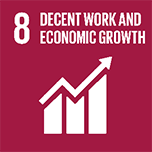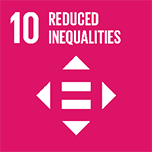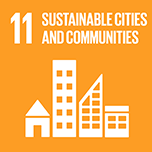Lecturer
Ph.D. in Medicine
Office’╝Ü Room 315
E-mail’╝Ükasajima@eikei.ac.jp
Office Hours’╝Ü Please make an appointment by email or through Teams.
Link to Research Map’╝Ühttps://researchmap.jp/kasajimamegumi/?lang=en

Lecturer
Ph.D. in Medicine
Office’╝Ü Room 315
E-mail’╝Ükasajima@eikei.ac.jp
Office Hours’╝Ü Please make an appointment by email or through Teams.
Link to Research Map’╝Ühttps://researchmap.jp/kasajimamegumi/?lang=en
She specializes in health policy and mathematical modelling. She has research experience at the University of Rochester, USA, the University of Tokyo, and was an assistant professor at the International University of Health and Welfare before her current position.
Health policy, mathematical modelling
Data Visualization
Practical Data Science
Health is a significant factor in enhancing the well-being and quality of life for individuals, serving as a fundamental determinant of their happiness and vitality. Moreover, health plays an important role in society in terms of social, economic and environmental aspects. Through the Health in All Policies approach, I hope to work with you to design fair and sustainable society for healthy living.
My research aims to design a sustainable society to achieve healthier and better well-being. Using simulation technology, I deepen my understanding of the relationship between health and health determinants and propose health policies to promote health improvement as well as to reduce socio-economic health inequalities.
Rapid population aging is a risk to social sustainability in countries like Japan that have low fertility rates and high life expectancy. Accurate estimates of future demand for health and social services in heterogeneous older populations are imperative to design sustainable healthcare and social security systems. Therefore, my research team developed the health transitions microsimulation to estimate future health and long-term care needs reflecting 12 diseases, subjective health, activities of daily living (ADL) and instrumental ADL.
Dementia and frailty are important factors influencing the health and long-term care needs of older people. We extended our health transition model to include these predictions. As a result, our model predicted that the age of onset of dementia would be delayed due to better education and health, and that the number of cases would not increase with the growth of the older population. However, our segmented result also showed a burden of medical and long-term care costs for the socioeconomically disadvantaged.
These studies are good examples of how simulation technology can be used to inform social security policy. I look forward to working with you to design a fair and sustainable society for healthy living, using data science to address social issues.
Kasajima, M., Eggleston, K., Kusaka, S., Matsui, H., Tanaka, T., Son, B.K., Iijima, K., Goda, K., Kitsuregawa, M., Bhattacharya, J., and Hashimoto, H., (2022). Projecting prevalence of frailty and dementia and the economic cost of care in Japan from 2016 to 2043: a microsimulation modelling study. The Lancet Public Health, 7(5), e458-e468.
Kasajima, M., Hashimoto, H., Suen, S.C., Chen, B., Jalal, H., Eggleston, K. and Bhattacharya, J., (2021). Future projection of the health and functional status of older people in Japan: A multistate transition microsimulation model with repeated crossŌĆÉsectional data. Health Economics, 30, 30-51.
Kasajima, M. and Hashimoto, H., (2020). Social policies and change in education-related disparities in mortality in Japan, 2000ŌĆō2010. SSM-Population Health, 12, p.100692, 1-10.
Yoo, B.K., Kasajima, M., Phelps, C.E., Fiscella, K., Bennett, N.M. and Szilagyi, P.G., (2011). Influenza vaccine supply and racial/ethnic disparities in vaccination among the elderly. American Journal of Preventive Medicine, 40(1), 1-10.
Yoo, B.K., Kasajima, M. and Bhattacharya, J., (2010). Public avoidance and the epidemiology of novel H1N1 influenza A (No. w15752). National Bureau of Economic Research, 1-39.
Simulation, mathematical modelling, socioeconomic health inequalities, health promotion, preventive medicine, cognitive impairment, health economics





